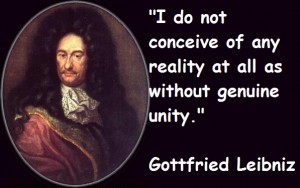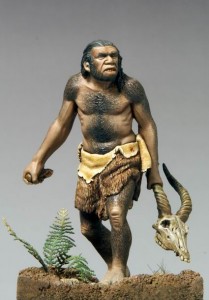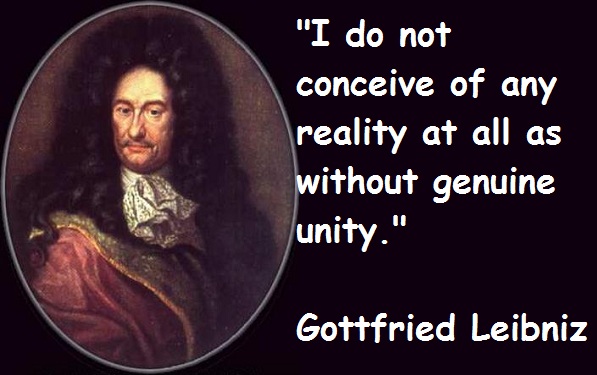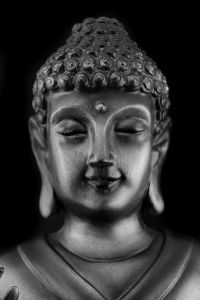We all read Voltaire’s “Candide” in our school days and the mantra still ricochets in our heads, “Oh yes, this is the best of all possible worlds” as the hero Dr. Pangloss goes about his series of misadventures. Voltaire was satirizing the words of an intellectual giant, a fellow by the name of Leibniz (co-inventor of the Calculus), and after enjoying the funny book, most of us left it behind except for that occasional ricochet.
 Leibniz’s statement was based on the idea of the perfect nature of God, as expected of any 18th century man and one that can be easily dismissed today on any number of grounds. But if we frame his statement in the context of natural philosophy (science), the idea may garner a second look. I came to this realization after a series of cosmological studies and subsequent thought experiments. If one accepts the multiverse idea, then our universe is one of many. The natural follow-up is “What might other universes be like?”
Leibniz’s statement was based on the idea of the perfect nature of God, as expected of any 18th century man and one that can be easily dismissed today on any number of grounds. But if we frame his statement in the context of natural philosophy (science), the idea may garner a second look. I came to this realization after a series of cosmological studies and subsequent thought experiments. If one accepts the multiverse idea, then our universe is one of many. The natural follow-up is “What might other universes be like?”
I’ve often thought that our universe is essentially a crappy one. We have to kill and eat other poor creatures to survive; we experience murder, cruelty, genocide, disease, filth, waste and death, not to mention rats and roaches. Of course there is a good side; we have compassion, pleasures, sunsets, wine and song, not to mention beauty and elegance. Whether they are equally balanced is another philosophical question we’ll save for later. But what of a universe whose yin exceeded its yang. What might such a place look like, or an even better question, could it possibly exist?
Could such a place arise through natural methods? Assuming a universe proceeds from nothing to something (and that energy becomes matter), or virtual to real, or perhaps tunnels through a black hole singularity, could any result create something better than what we earthlings experience? Might a paramecium and a chunk of algae live in perfect symbiotic harmony for millennia – an endpoint of evolution? Could an amoeba and some burgeoning plankton find a functioning codependency that replicates unchanged for generations? In a word, No. Not in our universe. The simmering stew of hot springs and rocks and gases and lightning that created the conditions for bacteria or amino acids can’t suddenly turn off and become benign. Ours is a universe of change, of randomness and of a tendency towards complexity; an attempt perhaps at self-definition. If you wish to call this force god, so be it. This is our universe; can there be any other kind?
Even if we entertain a universe of different physics we still need a mechanism for evolution. I don’t think it far-fetched that there may be many universes that are cold and dead – a dud if you will – ours being the rare fecund variety. In fact, life on earth could be the fluke of all flukes. It seems unlikely but it can’t currently be ruled out. And the most bizarro of all worlds, that mathematical masterpiece called string theory, posits a possible 11 dimensions. None of us can grasp such a conundrum but the fact remains; some sort of evolution must occur even in a warped multi-dimensional space-time anomaly. My recurring thought is that our evolution is the only evolution, there’s no other viable means. I may be delusional and narrow-minded and boxed in by my own physiognomy, so for this reason, I throw the question to the world. I’m hoping for a better answer.
Our world’s method consists of adaptation, mutation and canine-consume-canine competition; eat or be eaten, kill or be killed, adapt or die, fight to survive. Over the millennia this has created highly specialized, industrious, clever and sometimes very weird creatures; even intelligent and technologically savvy ones. But nature is spectacularly cruel and yet I can’t come up with a competent alternative. Perhaps it’s the narrowness of my own anthropomorphism or an intrinsic bias but my mind can’t conjure up a different modus operandi. Maybe there’s a Grigori Perelman of thought experiments somewhere that might come up with a different yin yang balance, one where flowers outnumber roaches.
 I find it amusing when the back-to-nature folks act as if all things naturel implies some sort of Garden of Eden. You’ll often hear the phrase “we humans shouldn’t play god” which is beyond ironic if it wasn’t so absurd. The fact is, we’ve been playing god since the dawn of civilization and if we hadn’t, we wouldn’t be here. Nature would kill us off in a nanosecond without remorse. We couldn’t have evolved if the dinosaurs weren’t whacked nor would we exist but for the survival of about a dozen tribesmen off the coast of South Africa during a particularly brutal ice age. Look at our Neanderthal cousins, where are they? Done. Over 99% of earth’s one-time species are extinct as we will be sooner or later. It’s a question of when, not if. So should we not take the gifts and minimize the horrors to make this universe the best it can be? A utopia no, but we can turn a mud hut into the Taj Mahal if we proceed wisely. Play god or die. What are agriculture and the herding of animals? How about surgery and penicillin? If we don’t transform, control and exploit nature, we’re finished. This isn’t a perfect world but it is ours.
I find it amusing when the back-to-nature folks act as if all things naturel implies some sort of Garden of Eden. You’ll often hear the phrase “we humans shouldn’t play god” which is beyond ironic if it wasn’t so absurd. The fact is, we’ve been playing god since the dawn of civilization and if we hadn’t, we wouldn’t be here. Nature would kill us off in a nanosecond without remorse. We couldn’t have evolved if the dinosaurs weren’t whacked nor would we exist but for the survival of about a dozen tribesmen off the coast of South Africa during a particularly brutal ice age. Look at our Neanderthal cousins, where are they? Done. Over 99% of earth’s one-time species are extinct as we will be sooner or later. It’s a question of when, not if. So should we not take the gifts and minimize the horrors to make this universe the best it can be? A utopia no, but we can turn a mud hut into the Taj Mahal if we proceed wisely. Play god or die. What are agriculture and the herding of animals? How about surgery and penicillin? If we don’t transform, control and exploit nature, we’re finished. This isn’t a perfect world but it is ours.
Thus I return to my original premise; is this “the best of all possible worlds”. Perhaps Darwinism, with its inherent cruelty, is the only means of creating self-consciousness and the will to improve. Can we transform our savage nature into something better? Maybe that’s the purpose of this universe – whether it’s the only and only or not – to see if life can overcome its inherent limitations to make a better world. Human beings have this capability although our progress is open to debate. This idea comes close to the philosophy called Panentheism; one in which god learns and grows through the actions of his creatures. Only we (at least on this planet at this time) can build a system of justice, decide whether to eat other creatures or raise children in satisfying conditions. We control our environment and have the ability to elevate it. Perhaps that’s our destiny, our task, our purpose – to strive thus. From this cruel, competitive, kill-or-be-killed paradigm we can morph as far from our roots as possible to create as close-to-a-Utopia as we can in this “best of all possible worlds”. Sorry Voltaire (and I’m a big admirer), times have changed; I now score it Leibniz – 1 Voltaire – 0.
The Best Of All Possible Worlds,



